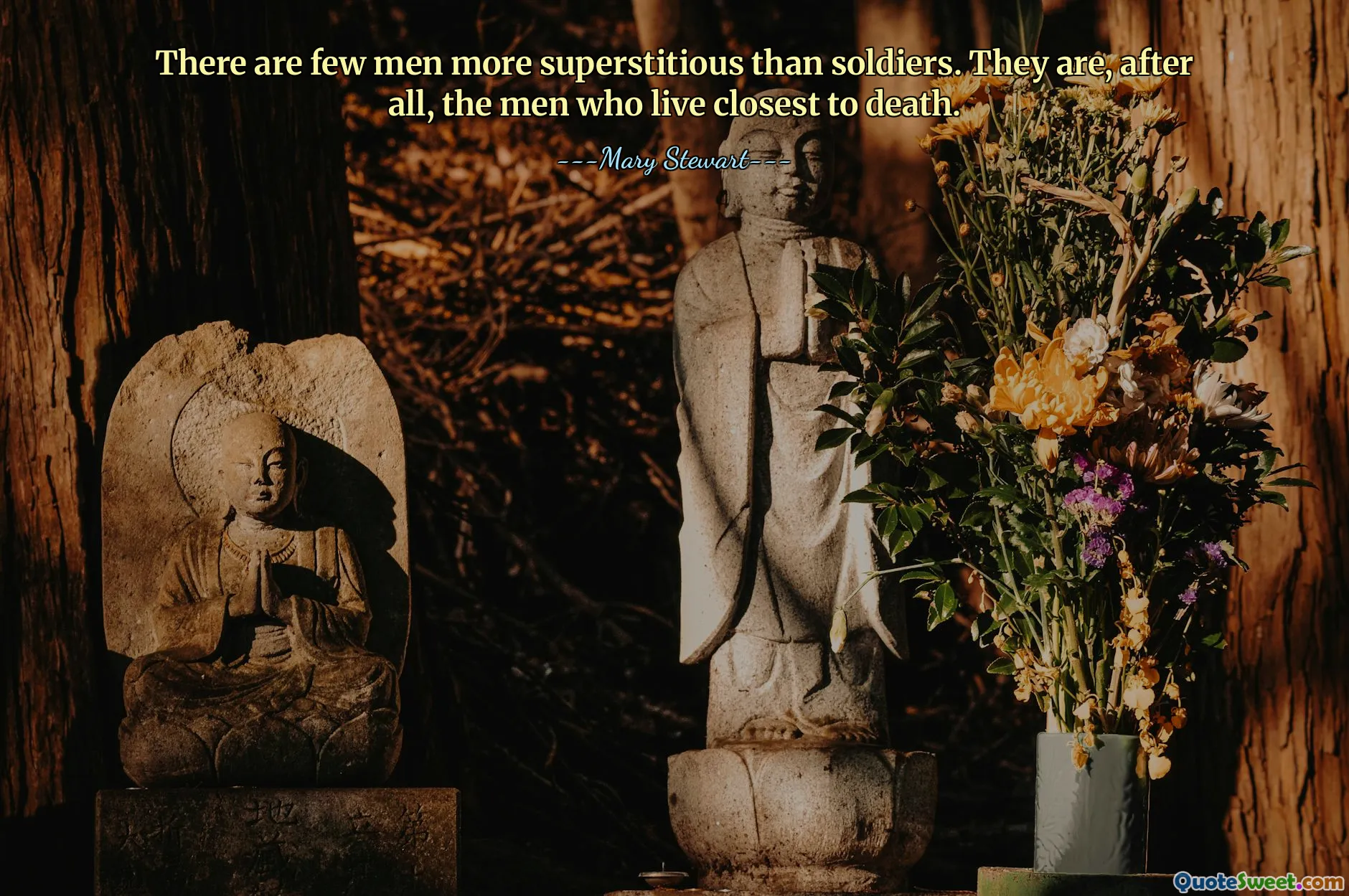
There are few men more superstitious than soldiers. They are, after all, the men who live closest to death.
This quote by Mary Stewart delves into the psychological landscape of soldiers, shedding light on a fascinating aspect of human nature when confronted with extreme situations such as war. Soldiers, who operate on the brink of mortality, develop a heightened sense of superstition. This superstition often serves as a coping mechanism, a way to impose control over the uncontrollable and to seek comfort amidst chaos.
Living in constant proximity to death amplifies the need for rituals and beliefs. These superstitions—be they lucky charms, specific routines, or omens—offer soldiers a semblance of protection against uncertainty. It’s a fascinating assertion because it touches on a universal human trait: the pursuit of meaning and security when faced with vulnerability and danger.
Moreover, the quote also hints at the shared humanity within soldiers, who despite their training and discipline, are no strangers to fear and hope. This understanding helps break down the often romanticized or mechanical image of soldiers, revealing the intricate interplay between mind and circumstance that shapes their experiences.
In broader terms, Stewart's observation invites us to reflect on how extreme environments shape belief systems and behaviors. It underscores the importance of empathy towards those in perilous roles, acknowledging that their superstitions are less about irrationality and more about psychological resilience. The statement thus serves as a reminder of the deep emotional and mental toll of facing death regularly, and the unique ways individuals adapt to endure such pressures.







